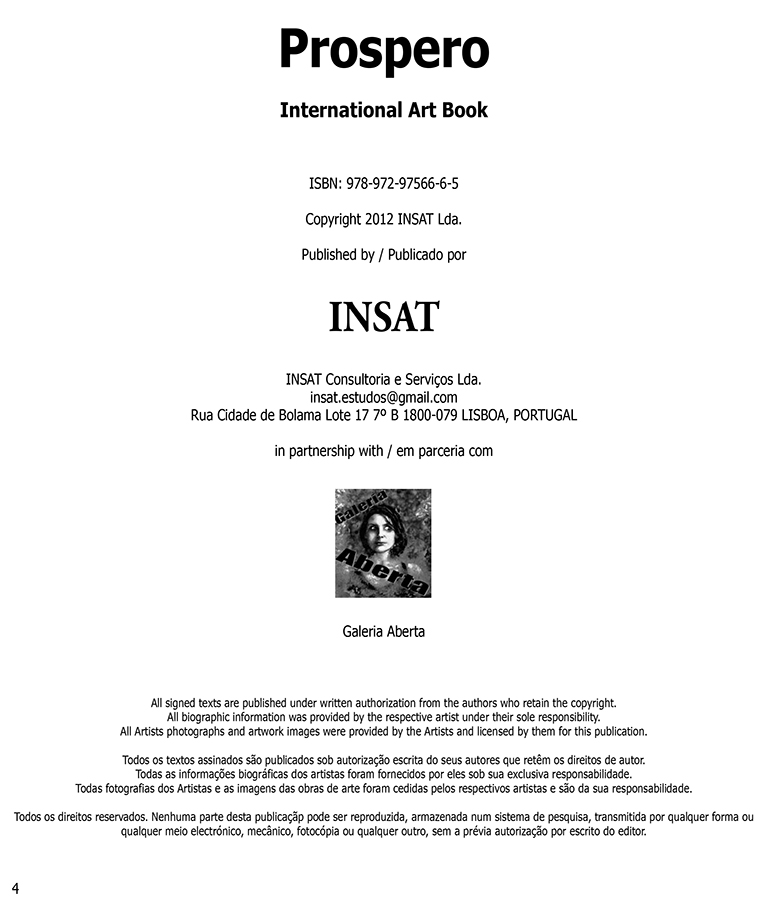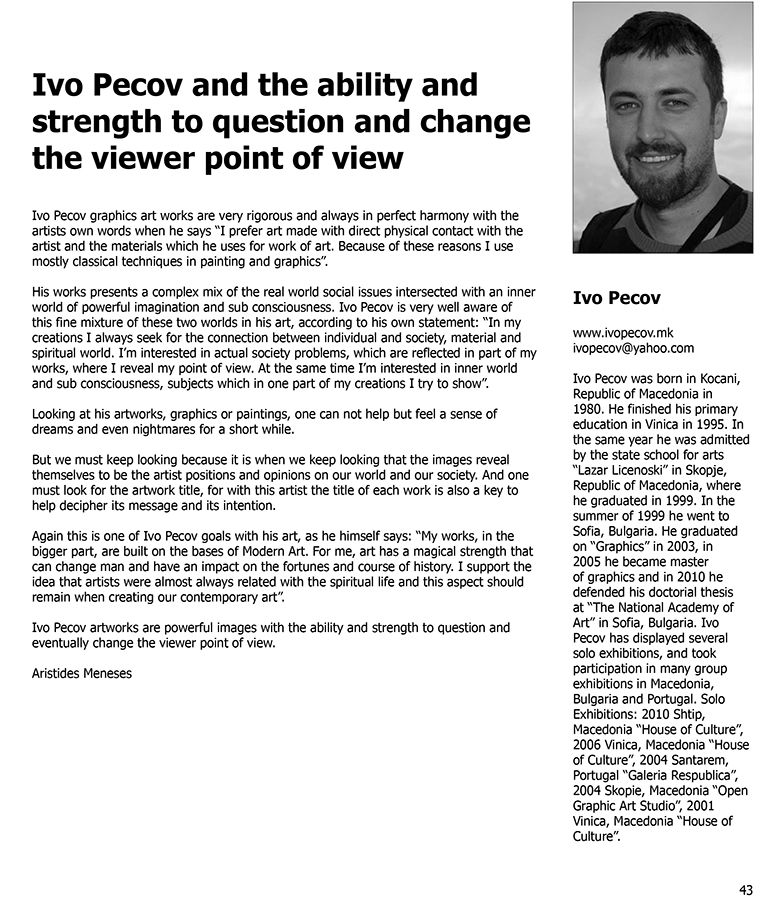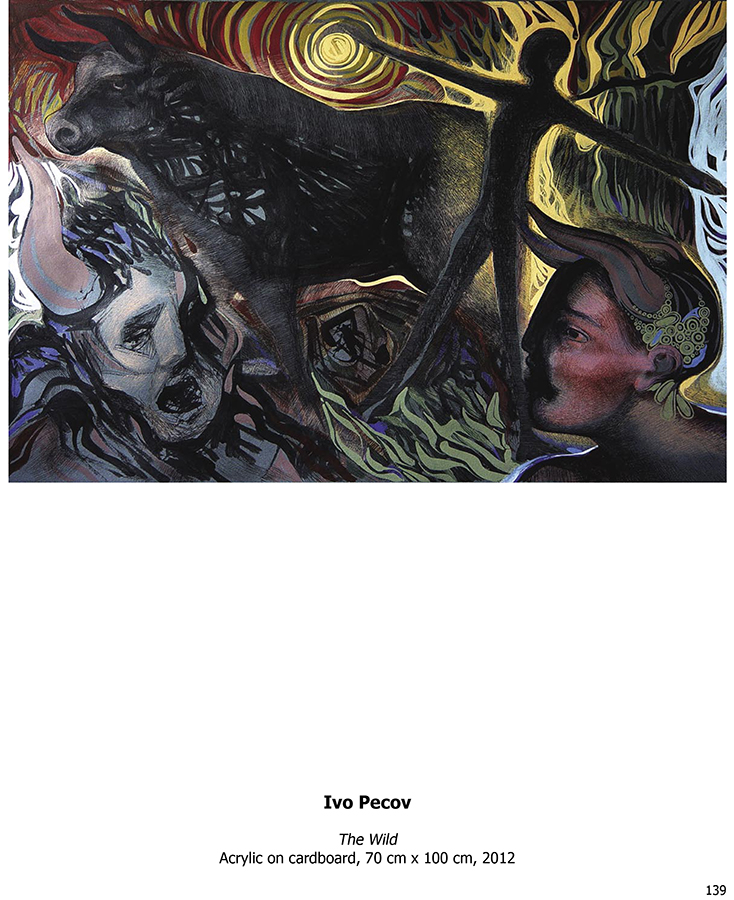Ivo Pecov graphics art works are very rigorous and always in perfect harmony with the artists own words when he says “I prefer art made with direct physical contact with the artist and the materials which he uses for work of art. Because of these reasons I use mostly classical techniques in painting and graphics”.
His works presents a complex mix of the real world social issues intersected with an inner world of powerful imagination and sub consciousness. Ivo Pecov is very well aware of this fine mixture of these two worlds in his art, according to his own statement: “In my creations I always seek for the connection between individual and society, material and spiritual world. I’m interested in actual society problems, which are reflected in part of my works, where I reveal my point of view. At the same time I’m interested in inner world and sub consciousness, subjects which in one part of my creations I try to show”.
Looking at his artworks, graphics or paintings, one can not help but feel a sense of dreams and even nightmares for a short while.
But we must keep looking because it is when we keep looking that the images reveal themselves to be the artist positions and opinions on our world and our society. And one must look for the artwork title, for with this artist the title of each work is also a key to help decipher its message and its intention.
Again this is one of Ivo Pecov goals with his art, as he himself says: “My works, in the bigger part, are built on the bases of Modern Art. For me, art has a magical strength that can change man and have an impact on the fortunes and course of history. I support the idea that artists were almost always related with the spiritual life and this aspect should remain when creating our contemporary art”.
Ivo Pecov artworks are powerful images with the ability and strength to question and eventually change the viewer point of view.
Aristides Meneses
Lisbon, 2012


